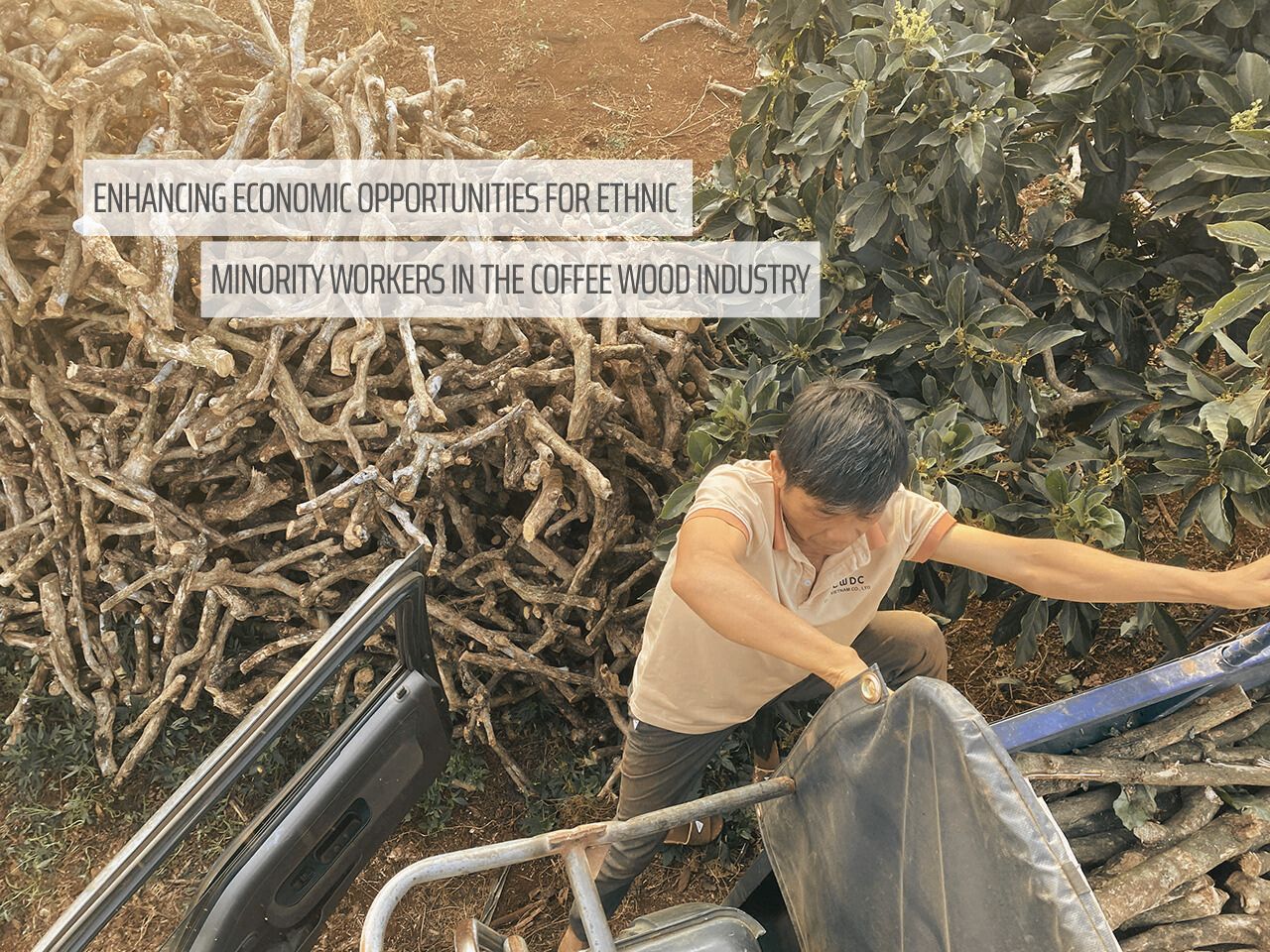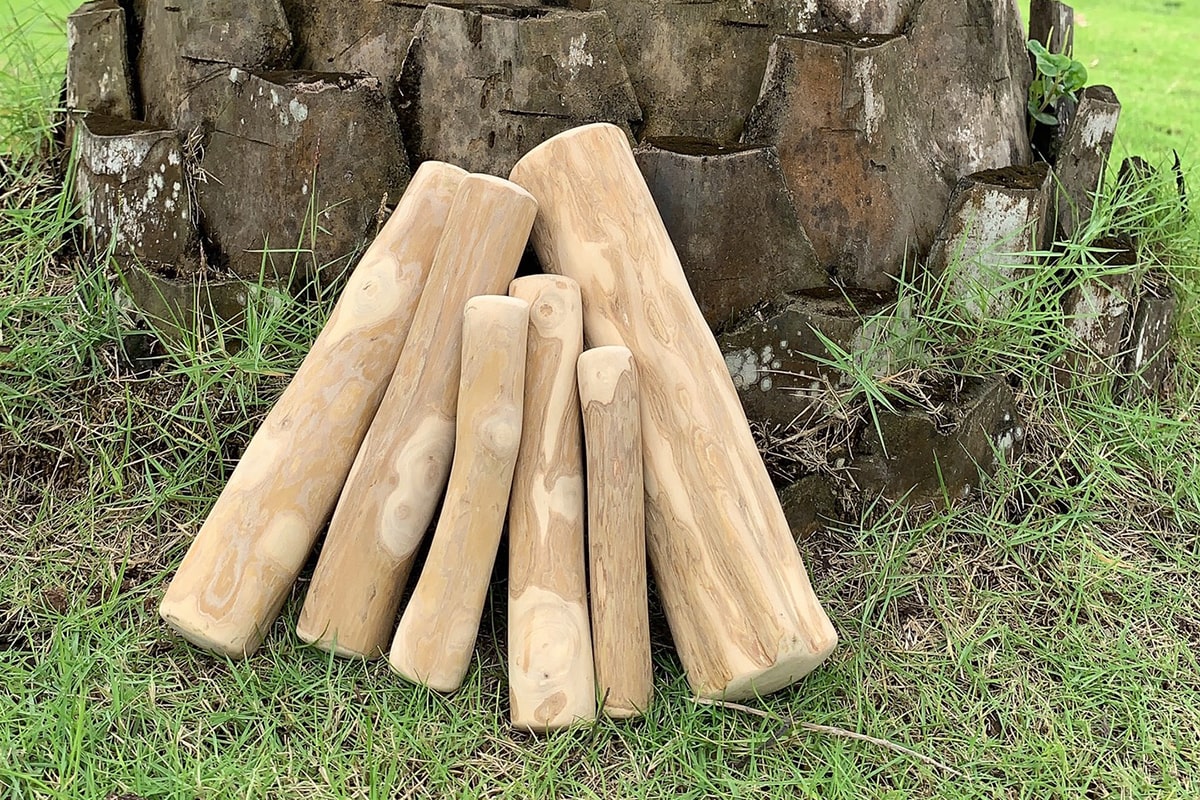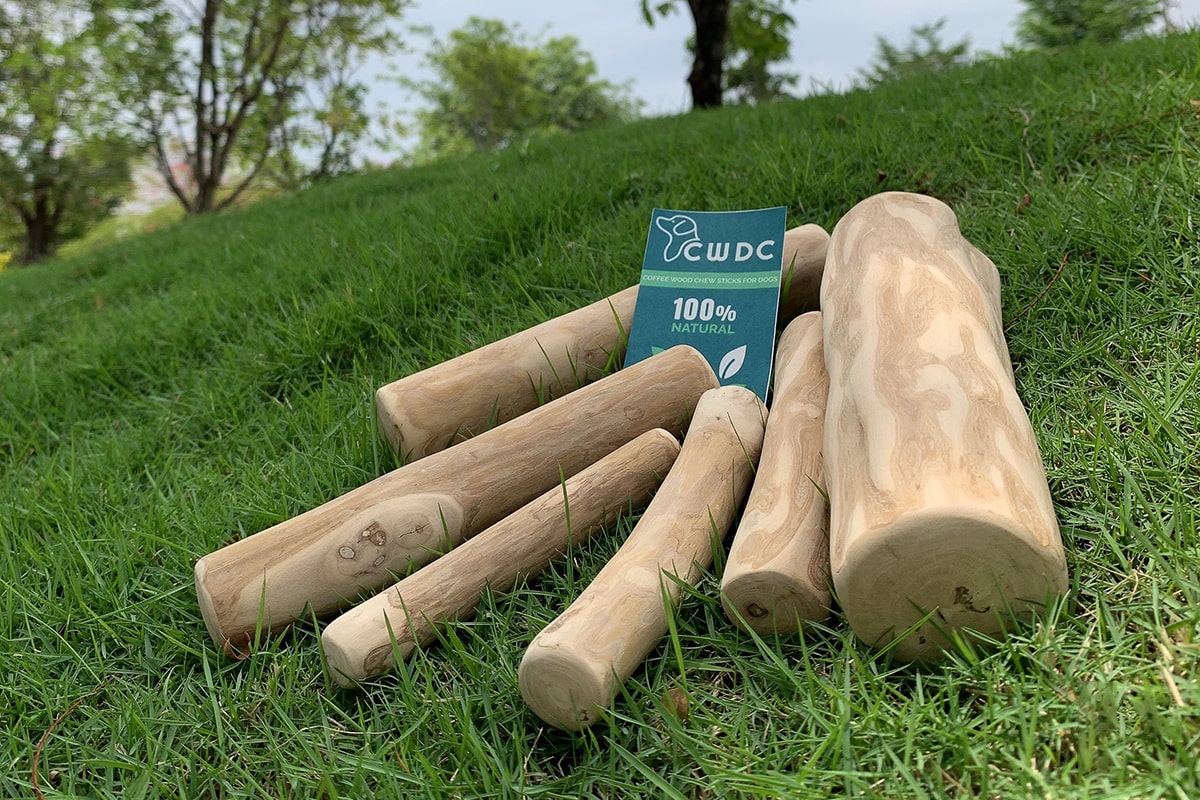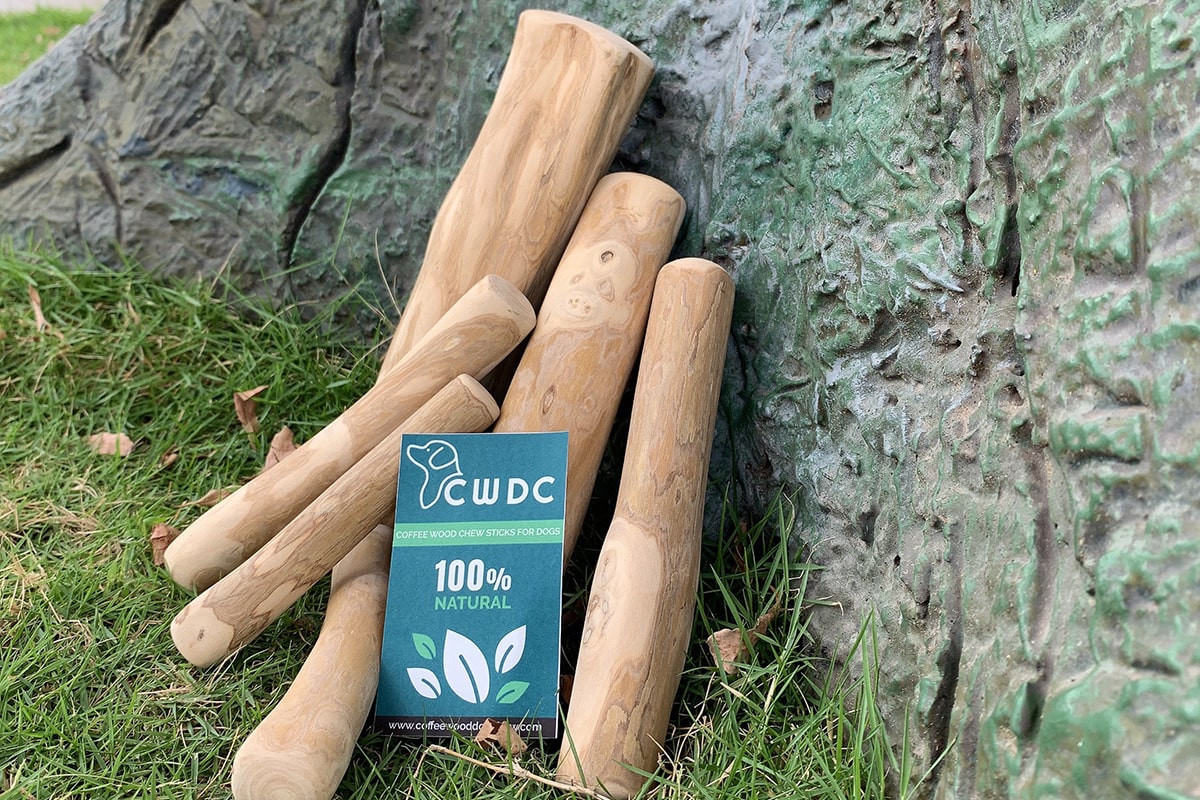In Vietnam’s Central Highlands, home to a rich mosaic of ethnic minority communities, the coffee industry has long been a cornerstone of rural livelihoods. However, for generations, the economic potential of coffee trees—particularly old and unproductive ones—was largely untapped.
As the coffee wood dog chew industry has grown, companies like CWDC Vietnam have identified an important opportunity: transforming the overlooked byproduct of aged coffee trees into a source of employment, skill-building, and income for ethnic minority workers.
This emerging sector is not only generating new economic opportunities but is also creating pathways for more inclusive and equitable development in regions where access to stable jobs is often limited.
1. Turning a Waste Product into a Source of Livelihood
Traditionally, once coffee trees reached the end of their productive life—often after 20 to 25 years—they were cut down and discarded or used as firewood. The labor involved in removing these trees was typically unpaid, burdensome, and carried no added value.
The rise of the coffee wood dog chew industry has shifted this narrative. Now, aged coffee wood is a marketable raw material, and ethnic minority communities who own and manage the Central Highlands’ coffee farms are directly benefiting.
CWDC Vietnam collaborates with these communities to purchase the old trees, creating a new income stream from something once deemed agricultural waste.
2. Creating Jobs in Rural and Remote Areas
As demand for coffee wood products increases, CWDC Vietnam and its local partners have established processing hubs close to coffee-growing regions, minimizing transportation costs while creating jobs where they are needed most. Ethnic minority workers are engaged in several key stages of the production process:
- Tree removal and primary sorting
- Initial cleaning and preparation of logs
- Cutting, shaping, and sanding into chewable sticks
- Quality control and drying
These jobs require varying levels of skill, making them accessible to both experienced artisans and new workers. Importantly, these are non-seasonal roles, offering year-round employment in areas where most work is limited to seasonal farming or informal labor. For many families, these jobs help diversify household income and reduce dependence on volatile agricultural harvests.
3. Skills Training and Capacity Building
CWDC Vietnam goes beyond simple job creation by investing in training programs for local workers. These programs include:
- Safe handling of machinery and tools
- Understanding product quality standards for export markets
- Basic supply chain and inventory knowledge
- Sustainable harvesting and environmental stewardship
By providing on-the-job training and developing local expertise, CWDC Vietnam ensures that workers not only perform their current tasks effectively but also gain long-term skills that improve their employment prospects. In some cases, experienced workers are promoted to supervisory or logistics coordination roles, further enhancing their earning capacity.
4. Empowering Women in Ethnic Minority Communities
A significant portion of the labor force in the coffee wood industry—especially in processing, finishing, and packaging—is made up of ethnic minority women. In many households, women play a central role in agricultural and economic activity but face barriers to formal employment.
CWDC Vietnam’s inclusive recruitment practices have helped elevate the economic status of women by offering flexible, dignified, and paid work close to home. This contributes to:
- Greater household financial stability
- Improved educational access for children
- More active participation by women in local decision-making and development planning
Our commitment to gender equity in hiring not only strengthens families but also fosters more resilient rural communities.
5. Fair Wages and Local Partnerships
CWDC Vietnam emphasizes fair compensation and direct sourcing, avoiding exploitative middlemen who often underpay producers. Workers and suppliers from ethnic minority communities receive transparent pricing and prompt payment, empowering them to plan ahead and invest in their farms, homes, or small businesses.
In many cases, CWDC works directly with village-level cooperatives or farmer associations, ensuring that profits remain within the community rather than being extracted by external traders.
Additionally, CWDC collaborates with local authorities and NGOs to promote community-led development, helping to identify underserved households and provide targeted job opportunities.
6. Promoting Sustainable Land Use and Long-Term Employment
Our approach also encourages better land management and forest protection. By creating a reliable market for aged coffee trees, CWDC Vietnam gives farmers an incentive to follow proper replanting cycles, ensuring that tree removal is tied to natural farm renewal rather than deforestation or over-harvesting. This supports environmental sustainability while also providing a predictable, recurring supply of work for laborers involved in harvesting and preparation.
As the industry matures, CWDC Vietnam is also exploring opportunities to engage younger members of ethnic minority communities, helping them see viable careers in the coffee wood industry and reducing the pressure to migrate to urban areas in search of work.
7. The Ripple Effect of Inclusive Economic Growth
The impact of these efforts extends beyond individual workers. With stable employment, families invest in better housing, education, and healthcare. Additionally, local economies benefit from the increased circulation of cash, as workers spend wages in nearby markets, contributing to the broader vitality of the region.
Moreover, the visibility of CWDC Vietnam’s collaboration with ethnic minority workers sends a positive signal to international buyers, many of whom prioritize suppliers that demonstrate ethical sourcing and social responsibility. This strengthens CWDC Vietnam’s brand and creates more opportunities for growth, which in turn fuels more job creation and shared prosperity.
8. Looking Ahead: A Scalable Model for Social Impact
As CWDC Vietnam continues to scale its operations, our company aims to replicate this inclusive model in other provinces and expand its supplier network while maintaining a strong commitment to local engagement.
By investing in training centers, offering advancement pathways, and expanding its ethical sourcing footprint, CWDC Vietnam is working to make the coffee wood dog chew industry a long-term source of income and empowerment for ethnic minority communities—not just a passing trend.
Conclusion
CWDC Vietnam’s work in the coffee wood dog chew industry demonstrates how a focused, values-driven approach to business can create real economic opportunities for ethnic minority workers.
By turning aged coffee wood into a valuable product and integrating local labor into every stage of the process—from harvesting to export—our company has helped improve livelihoods, build community resilience, and foster inclusive development in one of Vietnam’s most diverse and underserved regions.
As demand for sustainable pet products grows globally, CWDC Vietnam’s model stands out as a powerful example of how industry growth can go hand in hand with social impact.
Related Posts:
- How CWDC Vietnam Supports Sustainable Livelihoods for Minority Communities
- The Economic Value of Aged Coffee Wood and Its Rising Demand
- The Symbiotic Relationship Between CWDC Vietnam and the Ethnic Communities of the Central Highlands
- How CWDC Vietnam Navigates Supply Chain Challenges in the Coffee Wood Sector
- Are coffee wood chews safe for dogs ? A Comprehensive Look
- Coffee Wood Dog Chew - History and Development









